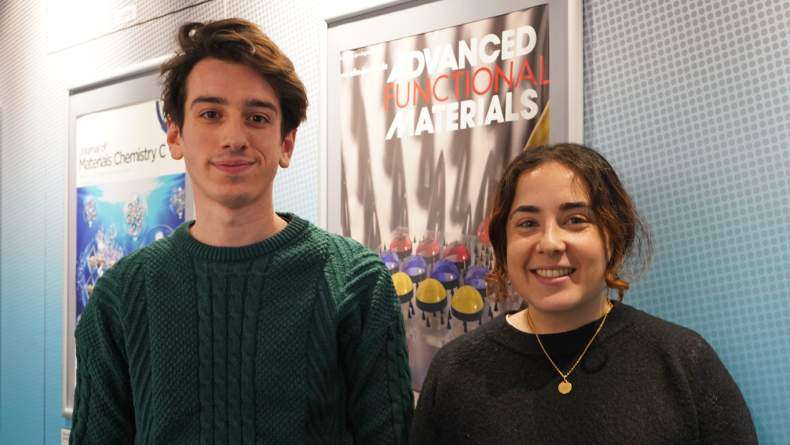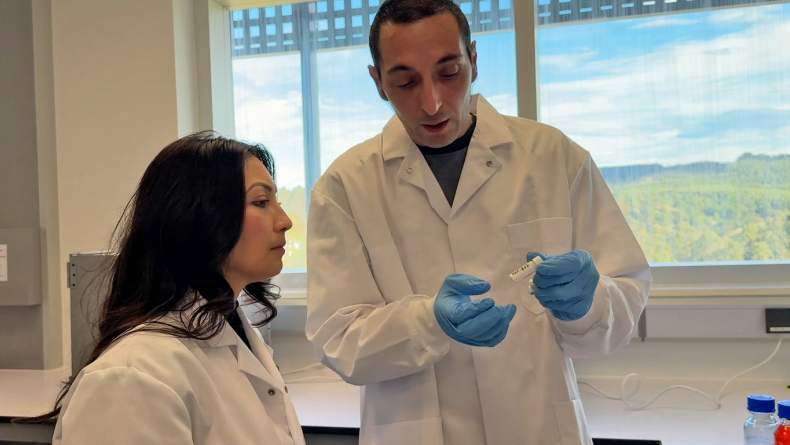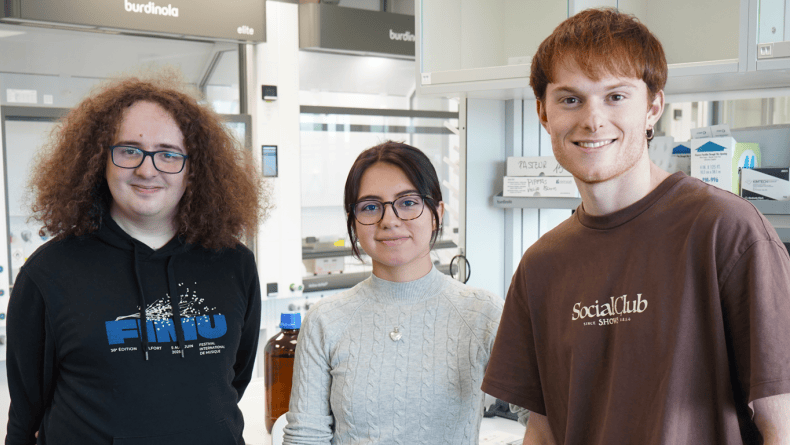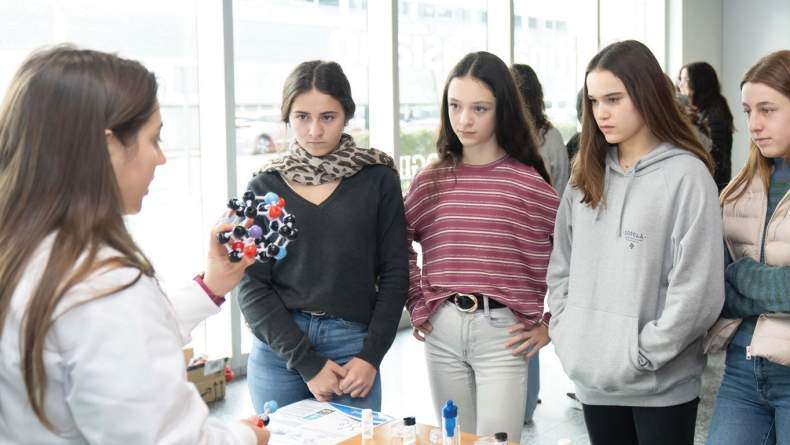BCMaterials Fortnightly Seminars #30

"Permanent Porosity in a Robust Hybrid Framework Formed by Decavanadate Clusters and Copper(II) Complexes of Macrocyclic Polyamines"
Jagoba Martin
(BCMATERIALS)
The crystal engineering of metal−organic hybrid materials with novel extended structures remains an important goal in synthesis and crystal growth. In this sense, the construction of coordination compounds with permanent porosity have attracted important attention due to their potential use in fields like gas storage, separation, and catalysis. In this work, a decavanadate-based porous supramolecular hybrid have been synthetized and characterized, namely, [{Cu(cyclam)}3(V10O28)2]·12H2O (1) (cyclam = 1,4,8,11–tetraazacyclotetradecane). The dehydration process was followed by single-crystal X-ray diffraction and the resulting anhydrous structure 1a proved to be virtually identical to that of the parent 1 which evidenced a MOF-type behaviour for the latter compound. The permanent nature of the porosity of 1 in conjunction with the reversibility of the dehydration–rehydration process could render potential catalytic, sensing or guest-absorption applications for this hybrid compound.
“Fabrication and Study of Static and Dynamic Characteristics of Metal-Ferroelectric-Metal Nanoscale Film Capacitor Structures”
Hovhannes Dashtoyan
(National Polytechnic University of Armenia)
In order to meet the strict requirements of modern information systems materials and structures with new and improved features are needed. In this regard the structures based on ferroelectrics (FEs) have a great potential. Interest in FE thin films has been considerable over the last 20 years, driven by the possibility of using them for non-volatile memory applications and new microelectromechanical systems (MEMS), FE FETs, photosensitive bio-medical sensors, solid-oxide fuel cell (SOFC) electrodes, voltage-tunable capacitors, microwave electronic components, Film Bulk Acoustic Wave Resonators [1-3], etc.
We have already investigated methods of fabrication of FE based (Ba0.25Sr0.75TiO3, Ba0.31Sr0.69TiO3, ZnO) nanoscale film capacitor structures [4, 5], their dark and photo J(V), I(V) characteristics, charge transport and conduction mechanisms in FE thin films, etc. in the framework of my PhD thesis.
In the framework of ERASMUS MUNDUS BACKIS grant program at the UPV/EHU it is planned to fabricate diverse FE based thin film capacitor structures (mainly metal-ferroelectric-metal) and develop the efficient technologies of fabrication, experimentally investigate different static and dynamic characteristics of fabricated structures and compare these results with the theory already developed by our research group in the framework of my PhD thesis.
Related news
Sara Martín y Stefano Lunghi, nuevos investigadores de BCMaterials
Desde BCMaterials damos la bienvenida a dos nuevas personas que integran nuestro personal investigador. Se trata de Sara Martín Iglesias, investigadora post-doctoral en la línea de Materiales Activod...Nanomateriales para la descontaminación y valorización de aguas
Personal científico de BCMaterials desarrolla nanomateriales de última generación, combinados con membranas poliméricas de origen natural, destinados a la descontaminación y revalorización de aguas....Tres nuevos investigadores se incorporan a BCMaterials
El nuevo año ha traído a BCMaterials la incorporación de tres nuevos jóvenes científicos a su equipo. Se trata de los investigadores predoctorales Karen Cano y Mikel Russo y el investigador...Actividades de BCMaterials en Emakumeak Zientzian
Este año se cumple el 10º aniversario del comienzo de la iniciativa Emakumeak Zientzian, que reúne a más de 30 entidades vascas organizadoras de actividades de divulgación científica con motivo de la...



